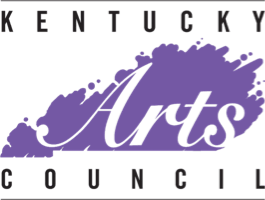The work continues: an update from Appalshop
3 years ago
 roger may.png)
Since floods ravaged eastern Kentucky the morning of July 28th, we are well into the clean-up and recovery phase post-flooding. The floods submerged the first floor of our historic main building - which has housed our main operations since 1982 - and the Boone Building across the street, which has housed our Appalachian Media Institute (AMI) program for several years.
The Boone Building sustained heavy damages including editing bays that housed the AMI Interns’ documentary film work from this summer’s institute. The hard drives were able to be recovered and two of the three films rescued, but all of AMI’s equipment was damaged beyond repair.
"I watched as the Boone Building began to flood on the morning of July 28th, and even as the water took it over I remained hopeful,” said Jessica Shelton, Director of the Appalachian Media Institute. “The recovery of two of our three Summer Documentary Institute films feels like a miracle, and we'll be finding ways to share these films with our community soon, including a fundraiser screening event in partnership with the Kentucky Theatre in Lexington. Yes, we've lost all of our storytelling tools, but there are still stories for us to tell and we are focused on ways to get back to doing that important work. We will be back."
In the main building, the areas that took the most damage were the WMMT 88.7 FM on-air studio, the Richardson Theater, and the archival warehouse.
The radio station on-air room was submerged in water for several hours and the contents of the studio a complete loss. The damage has prevented WMMT from being on-air, but WMMT General Manager Téa Wimer says that “Possum Radio will undoubtedly return, it’s just a matter of when, not if. WMMT’s current plan is to put out a request for a temporary mobile camper that will be set up in the Appalshop parking lot while we work to secure funding for a more permanent solution.”
Once the mobile camper and loaner equipment are secured, WMMT aims to be back on the airwaves before the end of August and hopefully much sooner. In the meantime, WMMT’s Ohio Valley ReSource reporter, Katie Myers, has continued to put out exemplary reporting work while meeting with local residents to honor their stories and loss. Partner stations from the Ohio Valley ReSource are also sending out their reporters to help cover this moment in Eastern Kentucky.
The Appalshop Archive also took on considerable flood waters, submerging much of its contents in over 6 feet of water for several hours. The Appalshop Archive is divided into two sections: a general warehouse and a climate-controlled vault that houses materials such as film reels, video tapes, audio tapes, and photo negatives.
“Over 24,000 audiovisual and photographic items were stored in the Appalshop Archive vault,” said Caroline Rubens, the Director of the Appalshop Archive. “Our first priority has been to stabilize the collections as much as possible. Archive staff and volunteers have been working tirelessly to carry out a complex recovery effort involving: the differing salvage environments required for a wide variety of media types, the availability of appropriate spaces for relocation of materials, and organization of refrigerated shipping to vendors and partners who have agreed to take materials for immediate storage and treatment.”
“There has been no permanent loss to Appalshop feature documentaries, which are available in digital formats and have been preserved with back-up copies stored off-site,” Rubens continued. “Among our greatest concerns are Appalshop’s media production archives which contain thousands of hours of irreplaceable documentation of central Appalachia such as field audio recordings, moving images of people and places, the early history of Appalshop’s radio station [WMMT 88.7 FM] and other items that form the heart and soul of our regional collections. We are optimistic that with time and resources a majority of these materials can be saved. However the process will be a long one, requiring a lot of resources including funding for supplies, archival recovery specialists, and conservation.”
Additionally, the Richardson Theater, which had recently been dedicated to Bill Richardson, one of the founders of Appalshop, sustained heavy damages as the majority of the 150-person theater was submerged.
Despite the heavy damages and losses, we remain committed to the role Appalshop has in the region and the changing ways our mission is to be carried out in the coming days, weeks, and months ahead.
“Just because Appalshop’s buildings have sustained heavy losses doesn’t mean the work is stopping,” said Alex Gibson, Executive Director of Appalshop. “Much of this building and the parts that were damaged serve our mission, but as long as we as a staff are working to lift up Appalachian voices, challenge stereotypes, and shine a light on Appalachian issues and celebrate what it means to be Appalachian through storytelling, we are serving that mission. I saw that in action over the past couple weeks and that is the real power of Appalshop. The work continues.”
Photo credit: Roger May

















